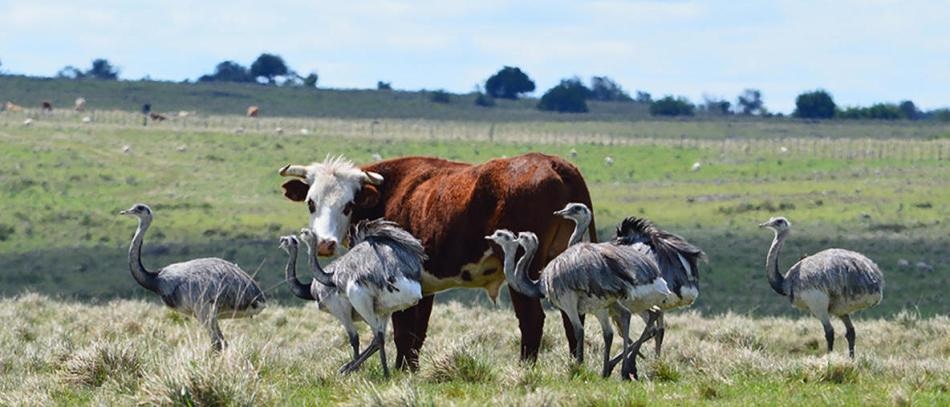Jul 18 2019
One of the most well-known problems across the world is biodiversity loss, which also influences human welfare. Having privately owned land extending to major areas of the world, private land conservation is a widely accepted approach to tackle the biodiversity loss and to maintain human welfare.
 Domestic cattle and Greater rhea (Rhea americana) coexisting in native grasslands, Uruguay. (Image credit: Gonzalo Cortés Capano)
Domestic cattle and Greater rhea (Rhea americana) coexisting in native grasslands, Uruguay. (Image credit: Gonzalo Cortés Capano)
Currently, many governments are developing and executing private land conservation policies to accomplish national and international conservation goals. A new study has evaluated 30 years of reported scientific studies to find conventional future private land conservation research and research gaps.
We found that 78% of the articles focused on four countries only, namely United States of America, Australia, South Africa and Canada.
Gonzalo Cortés Capano, PhD Student and Study Lead Author, University of Helsinki
He also stated, “However, priority areas for biodiversity conservation on private land extend well beyond these four countries. Worryingly, we also found that half of the articles did not report the engagement of any stakeholder sector, which is fundamental for successful biodiversity conservation.”
“Furthermore, we found differences in literature content, showing that research has focus on different topics at the continental level,” stated Tuuli Toivonen, Study Co-Author and Associate Professor, University of Helsinki. She added, “These differences might well reflect research adaptations to regional contexts and needs.”
While several policy instruments exist to promote private land conservation globally, we found that property rights instruments, for example landowners voluntarily transferring partial property rights to a conservation organization, were the most covered instruments in literature.
Dr Alvaro Soutullo, Study Co-Author and Scientific Director, Uruguayan Antarctic Institute
“As conserving biodiversity in a changing world requires understanding complex socio-ecological systems, it is paramount that future research better understands stakeholders’ engagement in private land conservation,” stated Enrico Di Minin, Study Senior Co-Author and Adjunct Professor, University of Helsinki.
He continued, “We also need to better understand which conservation actions and policies help achieve the best outcomes in diverse cultural and geographical contexts.”